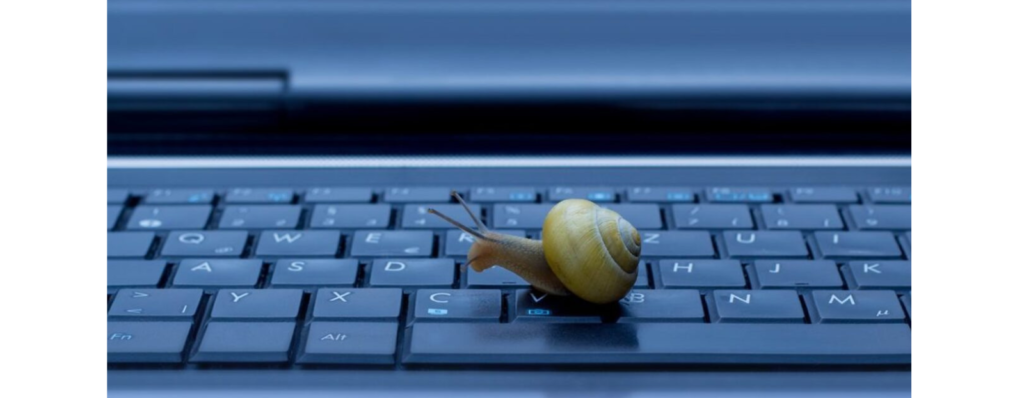Discount up to 35% for first purchase only this month.
If you notice your computer starting to slow down, it’s likely because you have too many programs running at once. Powering several programs at once takes a lot of processing power, impacting performance and speed. There are two ways to fix this: first, decreasing the number of programs running, and second, increasing your computer’s memory and processing power.
Whether you need to disable some start-up programs, defrag your hard drive, or upgrade your hardware, this article will help you discover why your computer is running slowly and how to fix it.

There are two ways to fix this issue: decrease the number of programs running, or increase your computer’s storage and processing-memory power.
High-level programs that launch automatically and operate in the background, or programs you open but forget to close, could be overwhelming your computer.
Removing or shutting down pointless programs can significantly accelerate a sluggish computer.
Press Ctrl, Alt, and Delete on your keyboard at the same time, then choose Task Manager to accomplish this. You can view the open apps together with their CPU and memory usage on the Processes tab. After then, you can end any open programs.
Certain computer programs launch on your device’s first startup. A different method to speed up your computer is to disable these start-up programs.
Return to Task Manager, and any apps that are scheduled to launch upon machine startup will be visible under the Start-up tab. After deciding which apps you truly need to have open automatically, use the Disable button in the lower right corner to stop the other ones.
Make sure you’re using the most recent version of your web browser if your computer is lagging behind when you access the internet. Enable the option to install updates automatically if one exists.
Keeping your browser free of pointless extensions and add-ons is another tip. You should be able to view and remove any add-ons or extensions that you no longer need from your browser’s Add-ons or Extensions menu.
An aging computer can seem brand new by being identified and replaced with modern hardware! Additionally, upgrading might be much less expensive than purchasing a new computer.
The two major components of hardware that have the biggest impact on your computer’s speed are your RAM and storage drive. Even after defragmenting, an outdated storage drive will still cause performance issues, and insufficient memory will only provide insufficient resources to execute several apps.
A fresh start also lets you see applications launch when your laptop boots into Windows. Many applications are designed to launch when Windows loads, and they tend to pile up over time. A pile of startup apps can bog down a laptop.
Open the Windows Settings app to clean out the startup apps. Navigate to Settings and quickly look up “Startup apps.” Unexpectedly, a list of apps that run at startup will appear. You can enable or disable each app by using the toggles next to it. Even the amount that they effect boot times is estimated by Windows, however in my experience, this estimate hasn’t shown to be true.
To do this, simultaneously press Ctrl, Alt, and Delete on your keyboard, and select Task Manager. On the Processes tab, you’ll see which programs are open, and how much CPU and memory they’re using. You can then close any programs you’re not using.
Why Does My PC Take So Long to Start Up? It could be your boot drive is getting a bit full, and not operating at peak performance. You might have too many programs trying to start alongside Windows, or your hardware could just be getting a bit old.
Over time the software and files must change and this more often than not has a detrimental effect on the performance. Over time you gather more information, programs, and data on your laptop or desktop. The larger the hard drive is and the larger the amount of data that you have on it, it affects its performance.
One of the easiest ways to clean up files you no longer need is by using Disk Cleanup. Open Disk Cleanup by clicking the Start button . In the search box, type Disk Cleanup, and then, in the list of results, select Disk Cleanup. If prompted, select the drive. that you want to clean up, and then select OK.
100% Original product that covered warranty by the vendor.
You have the right to return your orders within 30 days.
Your orders are shipped seamlessly between countries
Your payments are secure with our private security network.
Evisioninfoserve is dedicated to providing high-quality refurbished laptops to our customers. We understand that not everyone can afford brand-new laptops, and we believe in the value of extending the lifespan of technology while offering affordable options.
+91 9205888941
WhatsApp us